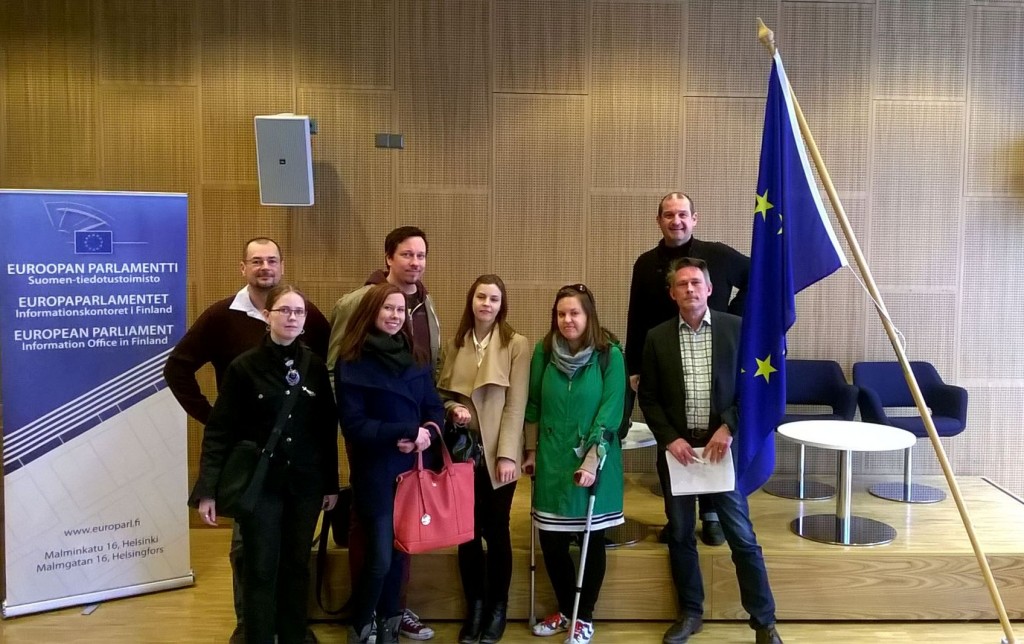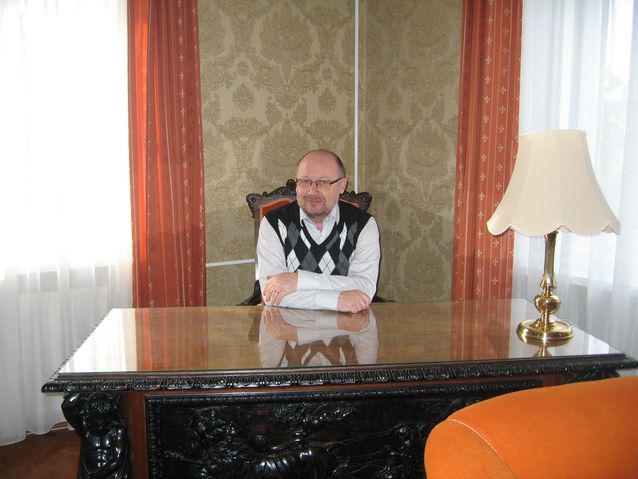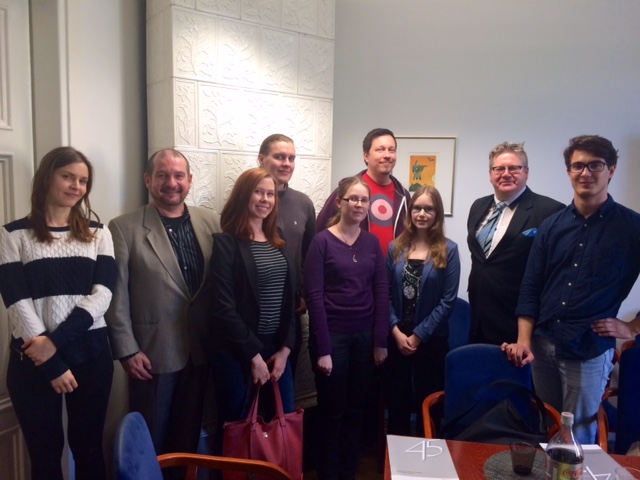On April 15th, 2015 a group of students from the advanced legal translation course of the Department of Modern Languages visited the European Union Representation in Finland.
The office is located in Kamppi in Helsinki and serves an information point for the European Union. Political Officer Timo Pulkkinen made a presentation about what the delegation does in Helsinki. Language Officer Mikael Reiman from the Directorate-General for Translation (DG Trans) in Helsinki also discussed the working for the European Union.

Left to right: Timo Pulkkinen, Johanna Raussi, Niina Nyman, Jarkko Saastamoinen, Saara Mälkiä, and Essi Suominen, Mike Garant (2nd Row), Mikael Reiman
Photo: Left to right: Timo Pulkkinen, Johanna Raussi, Niina Nyman, Jarkko Saastamoinen, Saara Mälkiä, and Essi Suominen, Mike Garant (2nd Row), Mikael Reiman
Pulkkinen talked about the different channels of communication that the EU has related to informing citizens in Finland about EY activity. He pointed out that all information is in Finnish. Their office hopes that Finnish people know what is going on in the EU in Brussels. He gave examples of the various websites and events that their office uses to inform citizens about the European Union’s activities.
Reiman discussed the activities of DG Trans in Finland and Brussels. This was of special interest to the student group because they study legal translation. He explained traineeship opportunities and how students could apply for them. Traineeships exist in Helsinki, Brussels and Strasbourg. There was a great deal of discussion about the possibilities and interest. See example position.
One student from the group already has an internship in Brussels in the summer of 2015. Another student applied for an internship in Helsinki following our visit and is in the interview process at the moment.
Overall, the study visits was a great success. Thank you to Timo Pulkkinen, Mikael Reiman and the Representation on the European Union in Finland for hosting us.
Text by Mike Garant



